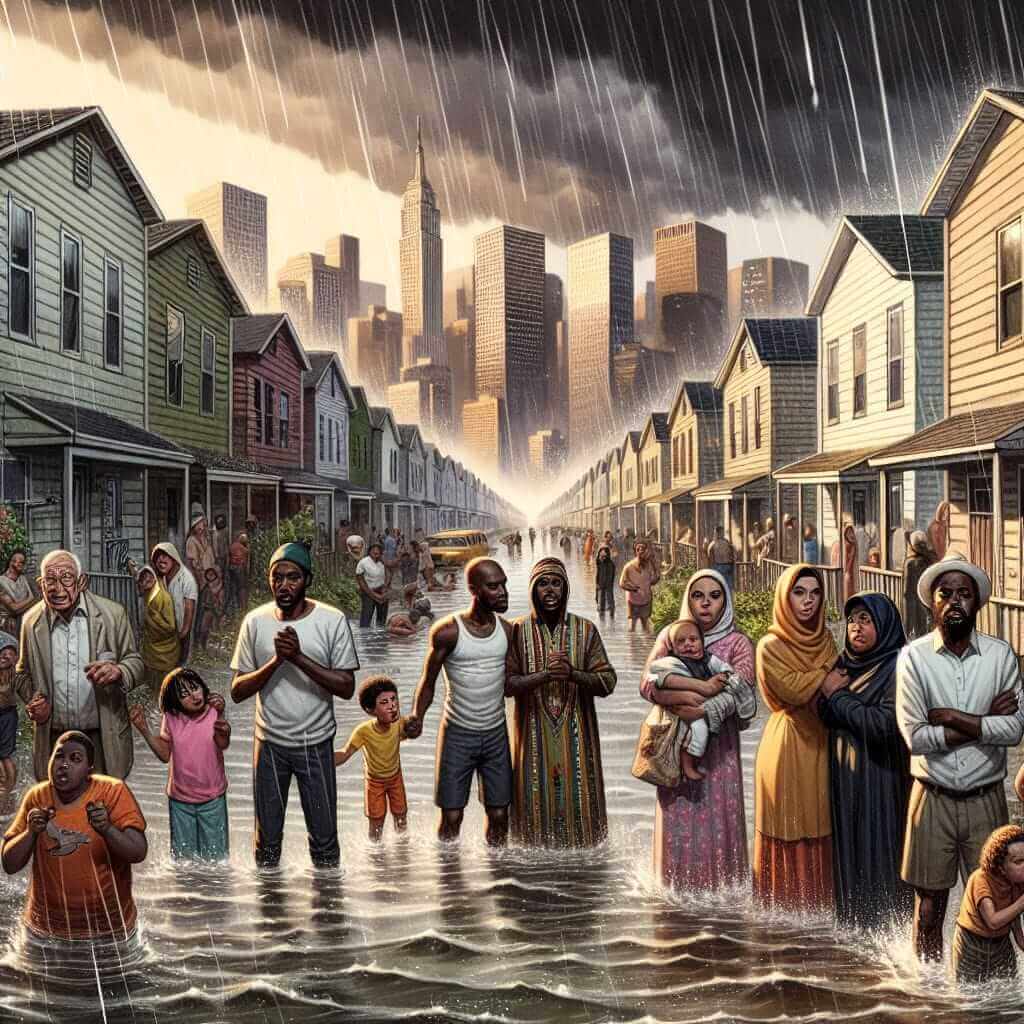The IELTS Reading section is designed to test a candidate’s ability to understand a variety of reading materials. With a growing emphasis on socially relevant topics, the theme of “Social implications of climate change on social equity” is particularly significant and timely. Based on past exams and current trends, this topic may appear in future IELTS examinations. In this guide, we’ll explore this theme in-depth, provide a sample reading passage, related questions, and answer keys to aid your preparation.
Nội dung bài viết
Main Content
Reading Passage (Medium Text)
The social implications of climate change on social equity are profound and multifaceted. Climate change, characterized by global warming, rising sea levels, and extreme weather patterns, disproportionately affects the most vulnerable communities. These include low-income households, marginalized groups, and geographically isolated populations.
 Climate Change Impact on Vulnerable Communities
Climate Change Impact on Vulnerable Communities
The intersection between climate change and social equity can be understood through several lenses. Firstly, environmental justice highlights the need for equitable distribution of environmental benefits and burdens. Studies have shown that poorer communities often reside in areas more susceptible to natural disasters, exacerbating their socioeconomic challenges.
Moreover, the economic impact of climate change further burdens these communities. For instance, increased healthcare costs due to climate-related illnesses, loss of livelihoods, and displacement due to natural disasters contribute to a cycle of poverty that is hard to break. Governments and policymakers are urged to consider these discrepancies when drafting climate policies to ensure that the needs of vulnerable populations are met equitably.
Educational disparities also come into play, as children from affected communities experience disrupted schooling, limiting their future opportunities. This educational setback not only affects individual futures but also perpetuates systemic inequality across generations.
Efforts to address climate change must therefore be both inclusive and holistic, focusing not just on environmental sustainability but also on promoting social equity. This involves creating adaptive strategies that prioritize vulnerable communities, investing in sustainable infrastructure, and ensuring that the voices of marginalized groups are heard in policy-making processes.
Questions
Multiple Choice
-
Which communities are most affected by climate change according to the passage?
- A. Wealthy urban populations
- B. Middle-income suburban households
- C. Low-income and marginalized groups
- D. Politicians and policymakers
-
What does the term ‘environmental justice’ emphasize?
- A. Distribution of wealth
- B. Equitable distribution of environmental benefits and burdens
- C. Increased urbanization
- D. Technical advancements in climate resilience
True/False/Not Given
- Poorer communities often reside in areas less susceptible to natural disasters.
- Climate change only impacts the environment, not the economy.
- Governments are urged to consider discrepancies in climate impact when creating policies.
Matching Information
Match the following effects to their corresponding implications mentioned in the passage:
6. Increased healthcare costs
- A. Economic burden
- B. Educational disparities
- C. Environmental justice
- D. Sustainable infrastructure
- Disrupted schooling for children
- A. Economic burden
- B. Educational disparities
- C. Environmental justice
- D. Sustainable infrastructure
Note Completion
Complete the notes below using NO MORE THAN TWO WORDS from the passage.
- Climate change and social equity are ___ and multifaceted.
- The economic impact of climate change burdens communities with increased ___ costs.
- Addressing climate change inclusively involves focusing on environmental sustainability and ___.
Answer Keys
Multiple Choice
- C. Low-income and marginalized groups
- B. Equitable distribution of environmental benefits and burdens
True/False/Not Given
- False
- False
- True
Matching Information
- A. Economic burden
- B. Educational disparities
Note Completion
- Profound
- Healthcare
- Social equity
Lessons
Common Mistakes and Tips:
- One typical mistake is misinterpreting information. Always refer back to the passage to clarify doubts.
- Pay attention to keywords in the questions that are synonymous with or paraphrase parts of the passage.
- Practice skimming and scanning techniques to improve speed and accuracy.
Vocabulary
- Multifaceted (adj) /ˌmʌltiˈfæ sɪtɪd/ – Having many aspects or phases.
- Marginalized (v) /ˈmɑːrʤɪnəˌlaɪzd/ – Treated as insignificant or peripheral.
- Socioeconomic (adj) /ˈsəʊsiəʊˌɛkənɒmɪk/ – Relating to or concerned with the interaction of social and economic factors.
Grammar
- Relative Clauses: Used to provide additional information about a noun (e.g., “Climate change, which is characterized by global warming…”).
- Passive Voice: Often used in academic writing to emphasize the action rather than who performed it (e.g., “This involves creating adaptive strategies…”).
Advice
To excel in the IELTS Reading section, consistent practice is crucial. Engage with a variety of texts, practice different question types, and focus on time management. Remember, understanding the context and vocabulary of passages is key to answering questions accurately. Familiarizing yourself with themes like climate change and social equity can also enhance your overall comprehension skills.
For more related reading materials, check out articles on The Importance of Water Conservation Efforts and The Importance of Renewable Energy Investment for Future Generations.


